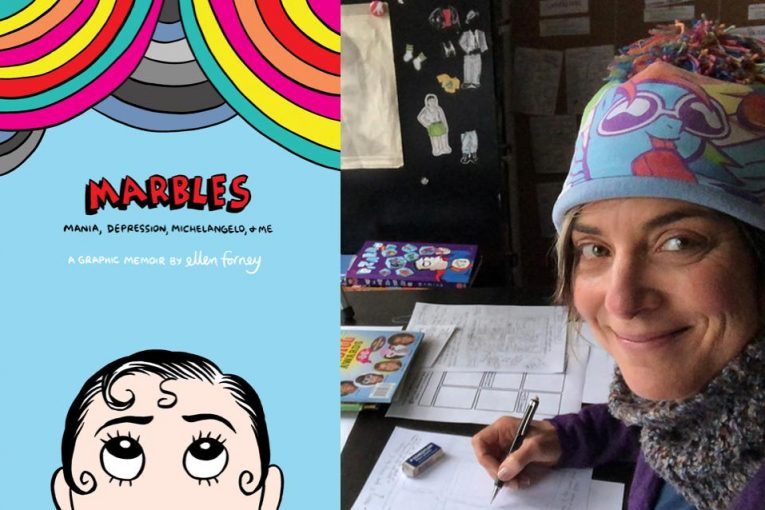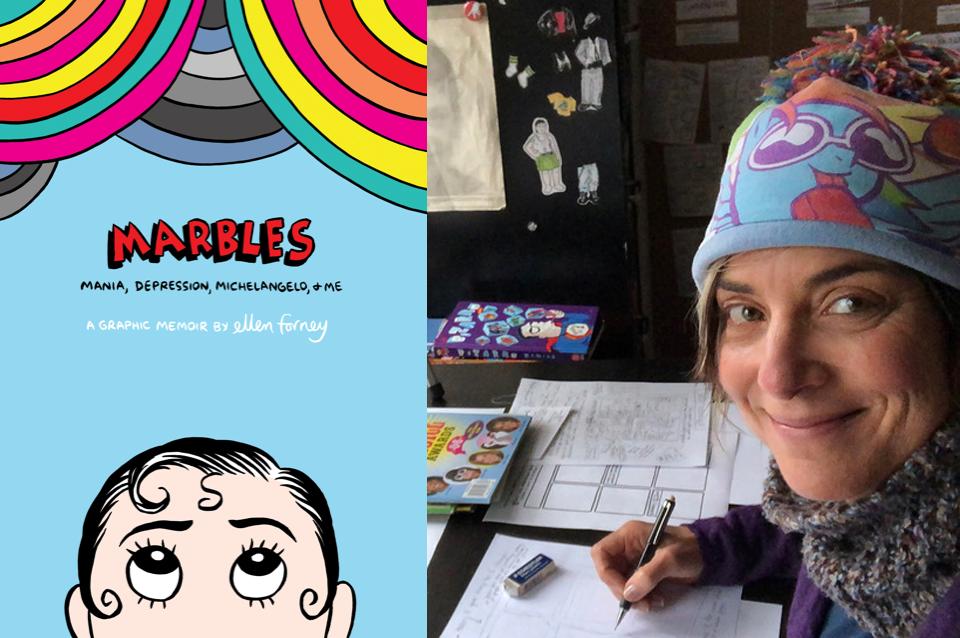
 By Jolene Darensbourg
By Jolene Darensbourg
DAVIS – The Campus Community Book Project at UC Davis has focused on the topic of mental health during the 2020-2021 academic year, focusing on a variety of lectures and exhibitions to improve inclusivity and diversity throughout the campus community.
In this week’s lecture session that took place on Wednesday afternoon, Karma Waltonen, a continuing lecturer of the University Writing Program, who focuses primarily on graphic novels and stand-up comedy, held a discussion about those two genres at the forefront on the topic of mental health that others are just now catching up to.
Giving background on the term mental health, it was revealed that it was not a phrase even used until the 1940s, meaning no one was talking about the various forms of mental illnesses. This meant there was not always a way for people to get proper diagnoses or medical assessment.
However, in today’s world, there are several more outlets for people to speak out honestly and openly about mental illness instead of keeping it a secret. In this effort, there are plans to get to a point where people can talk about it freely and not feel ashamed for admitting to having a mental health problem and seeking treatment.
Waltonen directed the first portion of the lecture on graphic novels and how they have incorporated the topic of mental illness when written by authors who actually have experienced some form of it, allowing for the personal narratives to restore the language and challenge the dominant representations within graphic memory redeeming the truths of those suffering.
One author Waltonen touched upon was Art Spiegelman, best known for his graphic novel “Maus” volumes I and II, which was first brought to the public in 1972.
“Maus” is about Spiegelman’s parents’ journey during the Holocaust and how they felt broken from the experience.
Specifically, there is one page in the novel where he opens up about his pain from his mother’s death and her postmenopausal depression, amongst other memories, but most notably on this page was Spiegelman himself at the bottom of the page, suffering from the weight of his parents’ deaths.
After receiving a Pulitzer Prize, Spiegelman wrote about the pressure of his success to make the hit book into a TV series, but there was a weight put on him not only from that pressure but also from the survivor’s guilt from his parents’ story.
Some of his panels in the book mentioned survivor’s guilt can even become generational and affect children.
This is because someone who is living with survivor’s guilt is not always the healthiest parent, mentally, which can cause them occasionally to project onto their children, as one of Spiegelman’s panels in the book was explained by a therapist, allowing the children to feel sadness and depression as well.
Waltonen then mentioned author Marjane Satrapi’s “Persepolis” volume I, which came out in 2001, speaking about Satrapi’s depression, and within the panels of the graphic novel, she is sad and despondent while not responding to her friends who were trying to talk to her daily, and she could not find it in her to reach out.
Allie Brosh, the author of “Hyperbole and a Half,” also had a few of her webcomic cartoons centered around depression and how she dealt with it.
In the webcomics, she mentioned her thoughts about suicide and how difficult it was to ask for help while also taking the time to point out there really is no comfortable way to talk to others about her dark thoughts.
Because of this, her way of sharing was through a comical sense.
Waltonen then transitioned to the genre of stand-up comedy, discussing how it is a great example of how comedians have different ways of dealing with or speaking out about their mental health or even hiding it completely.
One example of this is the legendary Robin Williams, who committed suicide in 2014.
Many did not know about his suffering with mental illness because he was in the time of an older school of comedy where mental illness was an issue kept privately and separate from his onstage act, unlike more recent comedians who actively talk about their serious matters.
Another stand-up comedian, Tig Notaro, spoke about her cancer diagnosis on stage, which was important within the comedy realm because it broke all the rules and showed her vulnerability.
Stand-up comedian Hannah Gatsby also openly talks about how being autistic impacts her relationships.
Waltonen explained comedians will use their comedy to essentially lure people into listening to the more serious experiences they went through, which opens up the floor to talking about the grittier things in life people tend to not talk about. This is important because it is a step toward rethinking what comedy can do for people.
Speaking about mental illness helps so many fans become more open, and it can help remove the stigma of mental illness in society.
Waltonen concluded the lecture by noting that in talking about mental health in graphic novels, we as an audience get to hear more real stories and experiences.
In stand-up comedy, she said the more serious matters are helping fans with supporting or seeking help and feeling more comfortable with speaking out.
 Jolene Darensbourg is currently a third-year student from Hemet, California. She is majoring in English and History while minoring in Professional Writing.
Jolene Darensbourg is currently a third-year student from Hemet, California. She is majoring in English and History while minoring in Professional Writing.
Support our work – to become a sustaining at $5 – $10- $25 per month hit the link:
